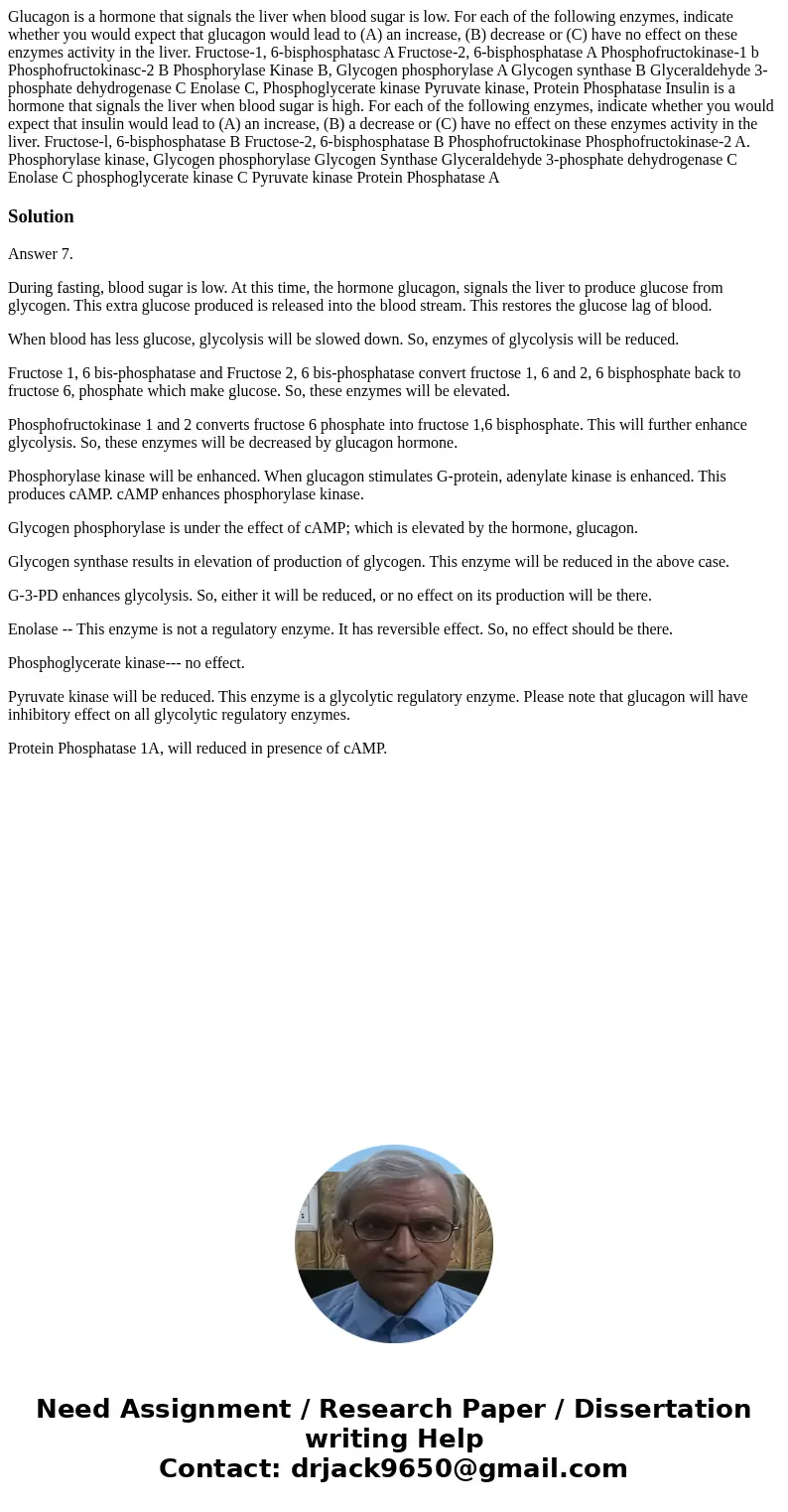Glucagon is a hormone that signals the liver when blood suga
Solution
Answer 7.
During fasting, blood sugar is low. At this time, the hormone glucagon, signals the liver to produce glucose from glycogen. This extra glucose produced is released into the blood stream. This restores the glucose lag of blood.
When blood has less glucose, glycolysis will be slowed down. So, enzymes of glycolysis will be reduced.
Fructose 1, 6 bis-phosphatase and Fructose 2, 6 bis-phosphatase convert fructose 1, 6 and 2, 6 bisphosphate back to fructose 6, phosphate which make glucose. So, these enzymes will be elevated.
Phosphofructokinase 1 and 2 converts fructose 6 phosphate into fructose 1,6 bisphosphate. This will further enhance glycolysis. So, these enzymes will be decreased by glucagon hormone.
Phosphorylase kinase will be enhanced. When glucagon stimulates G-protein, adenylate kinase is enhanced. This produces cAMP. cAMP enhances phosphorylase kinase.
Glycogen phosphorylase is under the effect of cAMP; which is elevated by the hormone, glucagon.
Glycogen synthase results in elevation of production of glycogen. This enzyme will be reduced in the above case.
G-3-PD enhances glycolysis. So, either it will be reduced, or no effect on its production will be there.
Enolase -- This enzyme is not a regulatory enzyme. It has reversible effect. So, no effect should be there.
Phosphoglycerate kinase--- no effect.
Pyruvate kinase will be reduced. This enzyme is a glycolytic regulatory enzyme. Please note that glucagon will have inhibitory effect on all glycolytic regulatory enzymes.
Protein Phosphatase 1A, will reduced in presence of cAMP.

 Homework Sourse
Homework Sourse